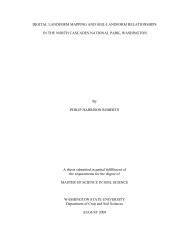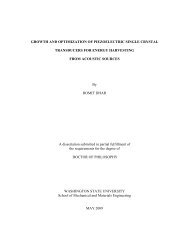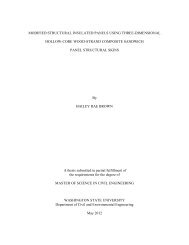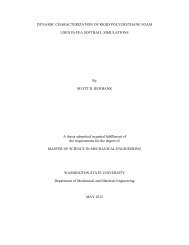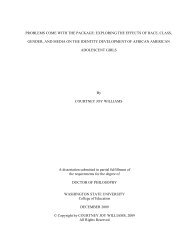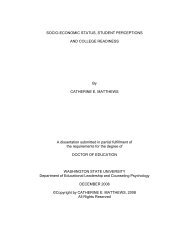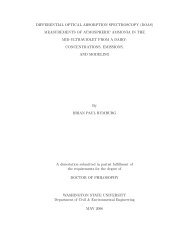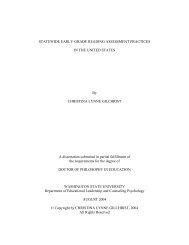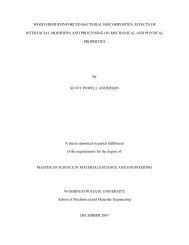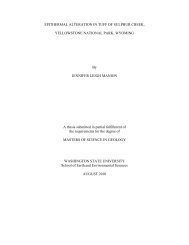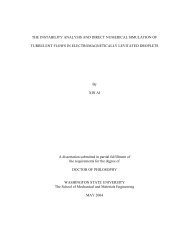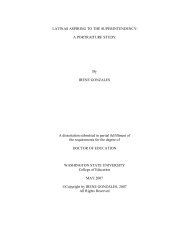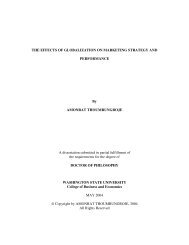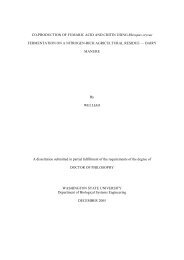the moral reasoning of student athletes and athletic training students
the moral reasoning of student athletes and athletic training students
the moral reasoning of student athletes and athletic training students
You also want an ePaper? Increase the reach of your titles
YUMPU automatically turns print PDFs into web optimized ePapers that Google loves.
<strong>athletes</strong> have a need to be challenged by <strong>the</strong> best. Only <strong>the</strong>n can <strong>the</strong>y know that <strong>the</strong>y have beaten<br />
<strong>the</strong> best.<br />
Unfortunately today, this ideal is no longer <strong>the</strong> reality. Today, more so than ever before,<br />
<strong>athletes</strong> train <strong>and</strong> compete under an intense pressure to win-at-all-costs. The drive for money,<br />
fame, <strong>and</strong> glory seems to overshadow <strong>the</strong> personal meanings gained <strong>and</strong> enjoyed through sport<br />
(Lumpkin, Stoll, & Beller, 2003). A thick fog <strong>of</strong> suspicion <strong>and</strong> doubt hangs over <strong>athletic</strong><br />
competitions from <strong>the</strong> elite level <strong>and</strong> intercollegiate to high school <strong>and</strong> junior high school levels<br />
<strong>of</strong> <strong>athletic</strong>s. It is <strong>the</strong> doubt cast by <strong>the</strong> suggestion that many <strong>athletes</strong> <strong>and</strong> <strong>the</strong>ir coaches will do<br />
anything, even cheat, to achieve victory <strong>and</strong> success. While <strong>moral</strong>ly questionable issues <strong>and</strong><br />
activities exist at all levels <strong>of</strong> sport, collegiate <strong>athletic</strong>s pose a multitude <strong>of</strong> challenges to <strong>the</strong><br />
<strong>student</strong> athlete, to <strong>the</strong> college/university, <strong>and</strong> to <strong>the</strong> greater mission <strong>of</strong> intercollegiate <strong>athletic</strong>s<br />
within <strong>the</strong> context <strong>of</strong> higher education (Alder & Alder, 1985; Plant, 1961; Gerdy, 2000).<br />
Purpose <strong>of</strong> Higher Education<br />
American colonial colleges <strong>and</strong> universities were created by a wide variety <strong>of</strong> churches,<br />
private individuals, <strong>and</strong> local <strong>and</strong> state governments (Smith, 1988). The main focus <strong>of</strong> education<br />
was to prepare individuals for <strong>the</strong> clergy <strong>and</strong> productive citizens in <strong>the</strong> community. While<br />
religion was not <strong>the</strong> entire curricular focus, it was a primary mission. As such, a relatively strict,<br />
pious regimen existed in terms <strong>of</strong> what was considered acceptable activities <strong>and</strong> behavior. Thus,<br />
<strong>the</strong> development <strong>of</strong> one’s <strong>moral</strong> integrity <strong>and</strong> character in <strong>the</strong> pursuit <strong>of</strong> becoming a productive<br />
citizen were primary.<br />
With this emphasis on <strong>moral</strong> <strong>and</strong> religious education, <strong>the</strong> development <strong>of</strong> <strong>the</strong> religious<br />
individual was considered more important than <strong>the</strong> development <strong>of</strong> <strong>the</strong> individual’s intellectual<br />
ability (Smith, 1988). “College <strong>of</strong>ficials believed that with <strong>student</strong>s rooming <strong>and</strong> boarding in <strong>the</strong><br />
2



